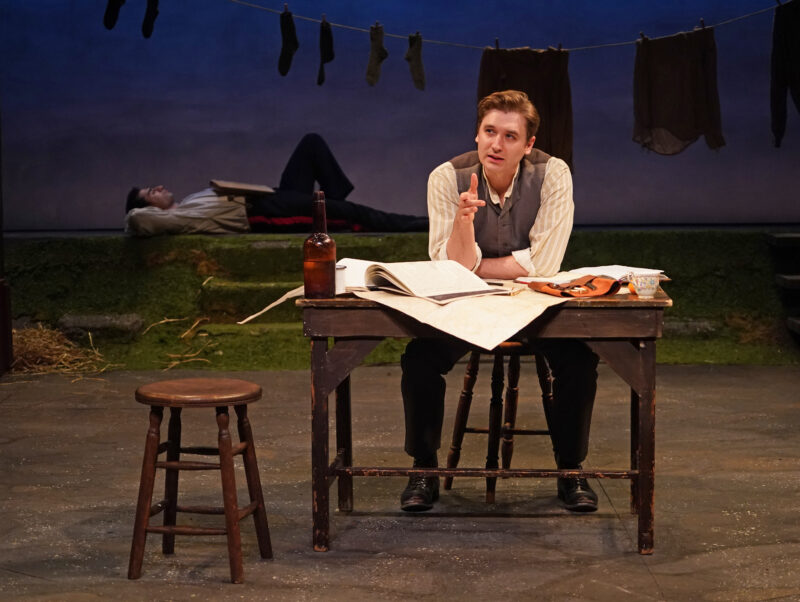 The danger with a Brian Friel play is charm. No stage Irishmen here at Irish Rep’s production, no comical drunkenness. Another danger, especially in a play about language, is the accents. This production, under Doug Hughes’s direction, has avoided the former and laid the latter on thick.
The danger with a Brian Friel play is charm. No stage Irishmen here at Irish Rep’s production, no comical drunkenness. Another danger, especially in a play about language, is the accents. This production, under Doug Hughes’s direction, has avoided the former and laid the latter on thick.
And that was, for me, a problem. It wasn’t until I got home and read the script—which, with long stage directions reads more like a novel—that I solved some of the plot questions I had been trying to answer. But this is not to suggest you should miss this theatrical experience, the first of three Irish Rep is planning for “The Friel Project” with Aristocrats and Philadelphia Here I Come! to follow into the Spring.
The play takes place in Friel’s fictitious little town of Ballybeg, an Irish-speaking community. It is 1833, before the Great Famine when the potato crop failed and so many people died of starvation. But the death that most concerns Friel is the death of the Irish language.
The play begins with Manus (Owen Campbell) a young scholar, multi-lingual and lame, who is treated like a servant by his drunk of a father Hugh (Sean McKinley). Manus is urging Sarah (Erin Wilhelmi) to speak her name for the first time in her mute life.
Hugh is the Master at the hedge school where adults pay him to teach them the basics of arithmetic and history, as well as Latin and Greek. Maire (Mary Wiseman) protests that they should be learning English.
And soon the British army arrives, tasked with changing the Irish place names to English names; Owen (Seth Numrich) Hugh’s older son arrives in the British employ, hired to be the army’s translator. He has been away a long time and is now rich, wearing city clothes, glad-handing everyone, a bit smarmy, a bit cavalier about the job’s mission. He realizes he is erasing his community and family, but, he shrugs, needs must. The political history of the English in Ireland is a given here, and Owen is a Friel type: an insider and an outsider (i.e., a translator) who betrays his heritage.
George (Raffi Barsoumian), one of the officers assigned to help Owen, falls in love with Ballybeg and with Ireland and most of all with Maire. Their romance is hindered by their inability to understand each other’s language, and his “Sorry—sorry” is a sad thread that runs through the dialogue, until their romance is compromised by a jealous betrayal.
Since the play is a murder mystery—and not just the murder of the Irish language—you will probably find yourself, as I did, pondering the clues Friel has cleverly built into this complex drama, as each scene comes to mean much more than it seems to; if only those scenes had more clearly highlighted those clues, I could have done my pondering in the audience rather than on the bus.
Extended to December 31.
[Irish Repertory Theatre, 132 West 22nd Street, New York, NY] October 20-December 31, 2023; irishrep.org
